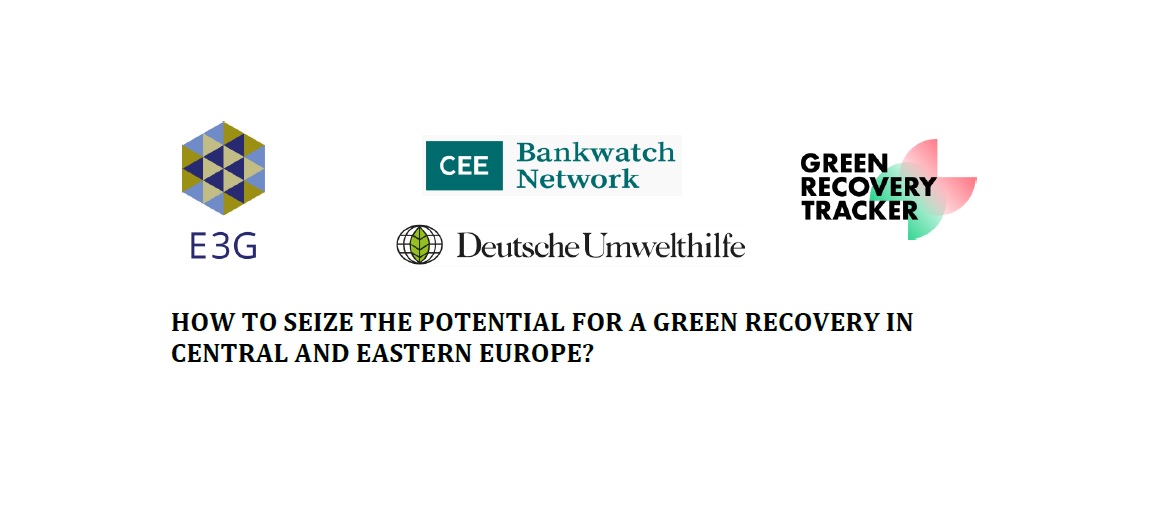How to Seize the Potential for a Green Recovery in Central and Eastern Europe?
The EU recovery package represents a unique opportunity to invest in the measures and technologies needed to implement the European Green Deal in Central and Eastern Europe.

The Next Generation EU (NGEU) fund is a European Union recovery package to support member states hit by the COVID-19 pandemic. Most countries in Central and Eastern Europe (CEE) have submitted their national recovery plans to the European Commission for review to access the funding. However, analysis by the Green Recovery Tracker suggests that these fall short from meeting the agreed target of spending a share of 37% of investments on the green transition.
Against this background, CEE Bankwatch Network, Deutsche Umwelthilfe (DUH) and E3G together with the EUKI Academy organised an event on 2 June to explore how to secure a green recovery in CEE. The speakers (EU Commission, EU Parliament, Bankwatch and ISFC) took stock of existing recovery plans and discussed how to ensure they put CEE countries on track to reach climate neutrality until 2050 the latest.
While the region is anything but an unified bloc, the discussion revealed that all countries share similar barriers to seizing the full potential of this money for climate action. There is a lack of strategic long-term planning by governments to guide investments. For example, the recovery plans are based on national energy and climate plans (NECPs) which are now no longer aligned with the EU’s new 2030 climate target. Moreover, a pipeline of bankable projects that can quickly be implemented is missing. Identifying transformational investment opportunities in the region will require bringing together policy makers, businesses including small and medium enterprises, financial institutions, civil society, and local stakeholders.

Speakers also agreed that it is crucial to create coherence between the recovery fund and other EU funding instruments like cohesion funding. The recovery funding should not be viewed in isolation and support the implementation of reformed EU energy and climate policies as part of the Fit for 55 package.
Importantly, it was highlighted that investments are not sufficient. They need to be complemented by policy reforms to create a favorable regulatory environment as well as technical assistance for the local level to facilitate development and implementation of projects. Transparent monitoring processes that include civil society are also needed.
Panelists identified multiple opportunities for civil society to ensure recovery funding is used in line with the European Green Deal. During the Commission’s official review of the national plans over the coming weeks, civil society can provide analysis and flag investments that risk high-carbon lock-in. For instance, an analysis by CEE Bankwatch reveals plans by governments in the region to use the recovery fund to finance natural gas investments. Once the design phase is over and implementation starts, civil society can call out investments not aligned with the plans. It can support capacity building efforts for the local level to ensure successful implementation of projects, facilitate best practice exchange and push for transparent monitoring processes.
The event ended on an optimistic note with speakers recognizing that the conditions for the green transition are improving in the region. The opportunities from climate action are increasingly recognized. Particularly at the local level, people are demanding climate action to benefit from cleaner air or better insulated homes.
Speakers were Wioletta Dunin-Majewska from the Cabinet of Elisa Ferreira (European Commissioner for Cohesion and Reforms) Damian Boeselager (MEP) and member of the Recovery Working Group in the European Parliament, Anelia Stefanova from CEE Bankwatch Network and Linda Zeilina from the International Sustainable Finance Centre (ISFC).
Find the recording of the event below:
